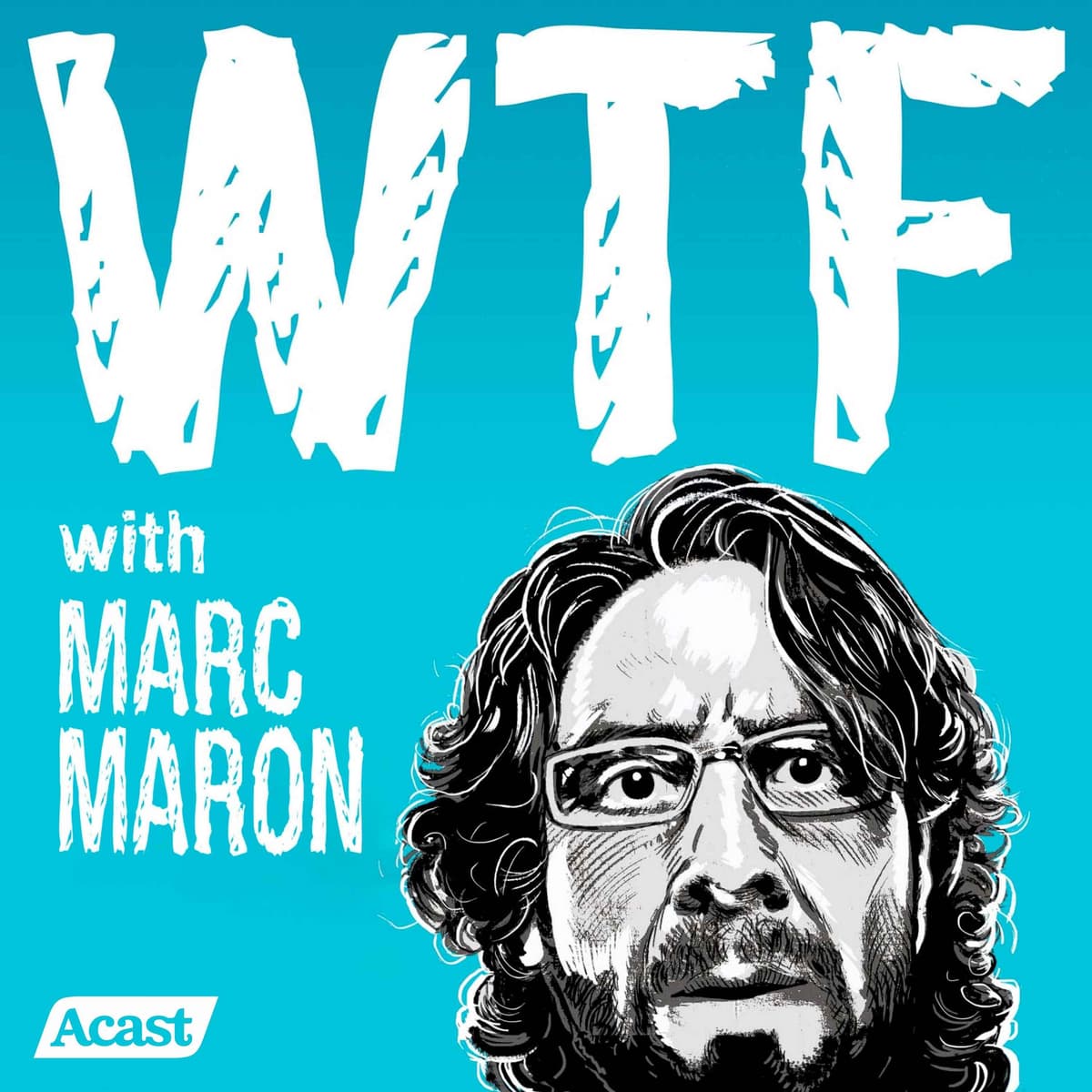WTF with Marc Maron: Episode 1639 - David Harbour
Introduction
In Episode 1639 of the "WTF with Marc Maron" podcast, hosted by Marc Maron, David Harbour joins for a deeply introspective and intellectually stimulating conversation. Known for his role as the Sheriff Jim Hopper on "Stranger Things" and his ventures into the Marvel Universe, Harbour engages with Maron in a candid discussion that delves into topics ranging from mental health and therapy to the impact of technology on human relationships.
Reconnecting and Setting the Tone
Marc Maron opens the episode with enthusiasm upon reuniting with David Harbour, highlighting their previous engaging discussions. The conversation quickly shifts to the evolution of content consumption, with Maron expressing his preference for long-form audio podcasts over the fragmented nature of modern digital media.
Marc Maron [00:58]: "Long form interaction, long form conversation and long form comedy... it's still the most human sort of pastime."
The Impact of Technology on Attention and Empathy
A significant portion of the discussion centers on how contemporary platforms like TikTok and Instagram have influenced human attention spans and creativity. Maron criticizes the corporate-driven push towards shorter content, arguing that it undermines genuine artistic expression and deep human connection.
Marc Maron [06:15]: "It's a fucking gift because I believe that long form interaction... is something that the brain has to settle into."
David Harbour echoes these sentiments, emphasizing that while technology offers unprecedented connectivity, it often does so at the expense of meaningful interactions and empathy.
David Harbour [64:27]: "And like, you say, building community, building empathy is the antithesis of what that phone is."
Therapy, Self-Exploration, and the Concept of 'No Self'
The conversation takes a personal turn as Maron discusses his experiences with anxiety and his reluctance to rely solely on medication, juxtaposing his struggles with the therapy approaches David Harbour employs. Harbour introduces the concept of "no self," rooted in Buddhist philosophy, exploring how shedding the ego can lead to a more authentic existence.
Marc Maron [18:25]: "I don't have a problem with it. I get it. It's comedy."
David Harbour [21:31]: "What about the idea of no self?"
They delve into the challenges of embracing vulnerability and the fear of intimacy in an age where superficial connections are prevalent. Maron shares anecdotes about his cat's anxiety when he's away, using it as a metaphor for his internal struggles with self-identity and authenticity.
Marc Maron [19:48]: "So I project all of my feelings about Prozac onto the cat. But I think the moment of profundity is..."
Art, Performance, and the Search for Truth
Maron and Harbour discuss the role of art and performance in fostering community and empathy. Maron reflects on his commitment to stage work as a form of community service, providing a safe space for individuals feeling isolated in the modern digital landscape.
Marc Maron [61:11]: "It brings community... and these are people that are terrified and nervous... but they know I'll speak to it and speak to the sources of my own kind of struggle."
Harbour adds that acting and performing allow individuals to explore and express their multifaceted selves, counteracting the one-dimensional personas often portrayed in digital media.
David Harbour [75:16]: "But you could look at the world and say like, oh, it's a shit show of capitalist swagger on who's going to be on top."
The Future of Humanity and Empathy
Towards the latter part of the episode, the duo contemplates the future of human relationships in an increasingly technologized world. They express concern over the erosion of empathy and the potential descent into societal barbarism as articulated by Hannah Arendt.
Marc Maron [62:52]: "The death of human empathy is one of the earliest and most telling signs of a culture about to fall into barbarism."
Both Maron and Harbour agree that fostering genuine human connections and maintaining empathy are crucial battlegrounds against the isolating forces of technology.
David Harbour [86:20]: "And at this point I'm thinking all we should... like, I think."
Reflections on Personal Growth and Artistic Integrity
In a reflective close, Maron shares his admiration for Al Pacino's unwavering pursuit of truth in acting, contrasting it with his own struggles to balance creativity and personal vulnerability on stage. This introspection underscores the episode's recurring theme: the quest for authenticity amidst external pressures and internal demons.
Marc Maron [81:14]: "He never looked at it, you know, until he had to make compromises... he never looked at it as anything other than a pursuit of truth."
David Harbour emphasizes that art serves as a frontline in the battle to preserve humanity, using his platform to bridge gaps and foster understanding through shared vulnerabilities.
David Harbour [86:25]: "Like, I have to be effective... that's the battlefront and it's the skill set that I have too."
Conclusion
Episode 1639 of "WTF with Marc Maron" featuring David Harbour is a profound exploration of modern existential dilemmas, the role of art in society, and the enduring human spirit amidst technological encroachment. Through their heartfelt dialogue, Maron and Harbour illuminate the importance of maintaining empathy, authenticity, and community in an ever-evolving digital age.
Notable Quotes
- Marc Maron [00:58]: "Long form interaction, long form conversation and long form comedy... it's still the most human sort of pastime."
- David Harbour [21:31]: "What about the idea of no self?"
- Marc Maron [62:52]: "The death of human empathy is one of the earliest and most telling signs of a culture about to fall into barbarism."
Closing Remarks
As the episode wraps up, Maron promotes his upcoming HBO special and upcoming tour dates, while also encouraging listeners to subscribe to WTF+ for bonus material. The engaging and thought-provoking conversation between Marc Maron and David Harbour leaves listeners reflecting on their own relationship with technology, empathy, and the search for self.
